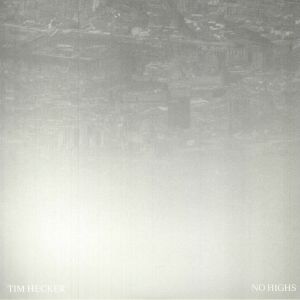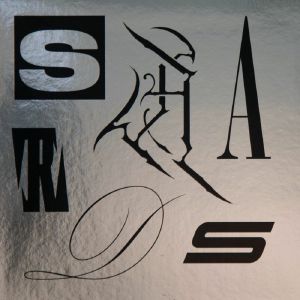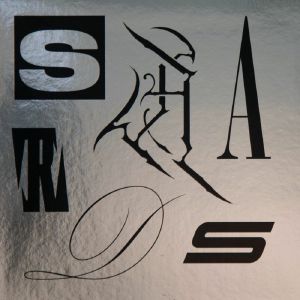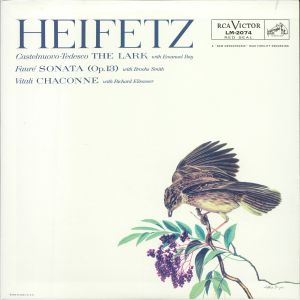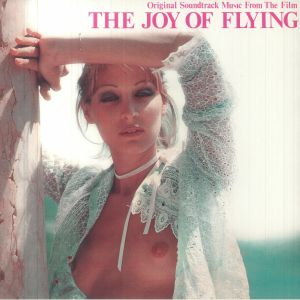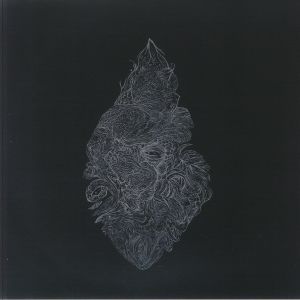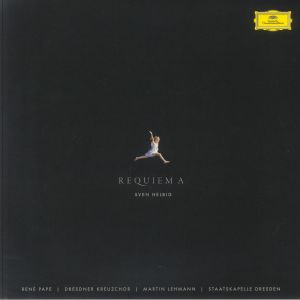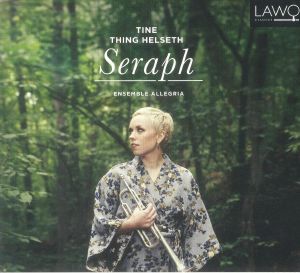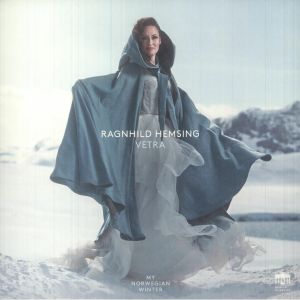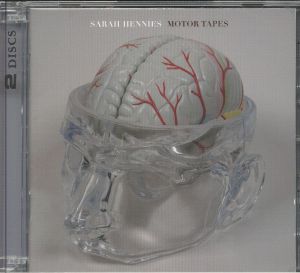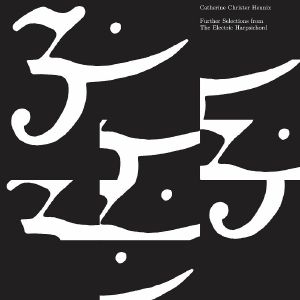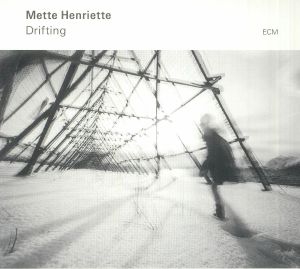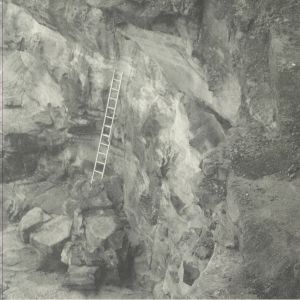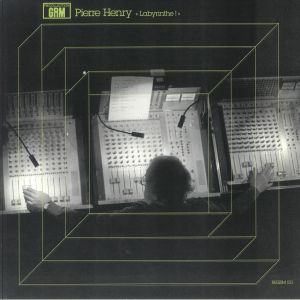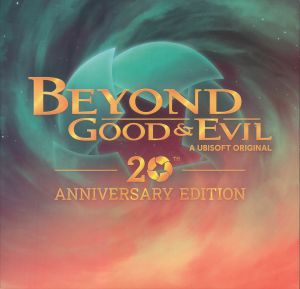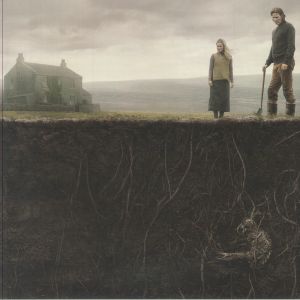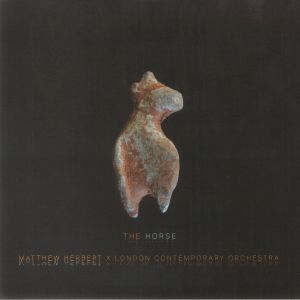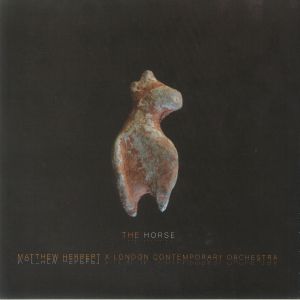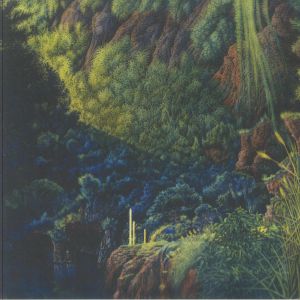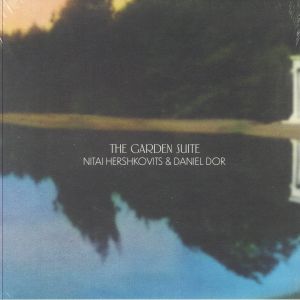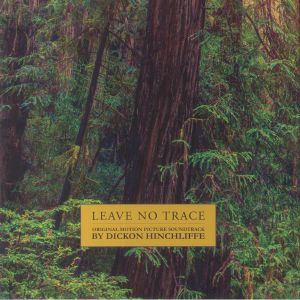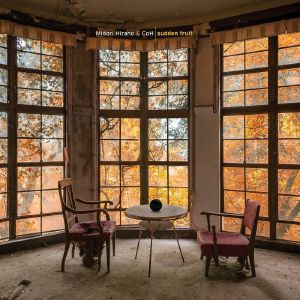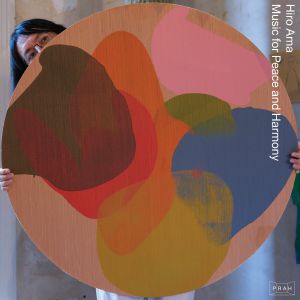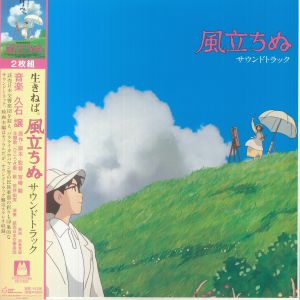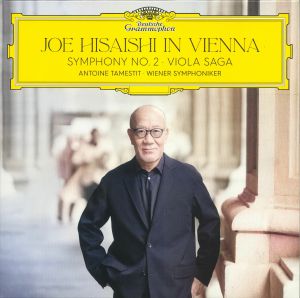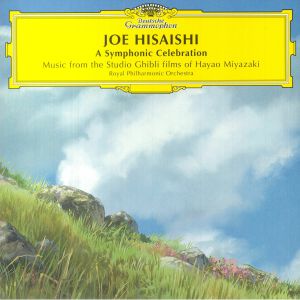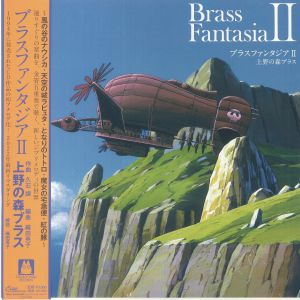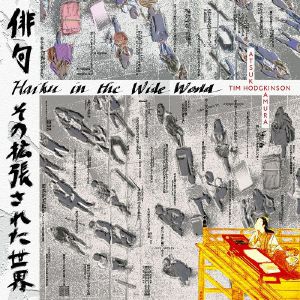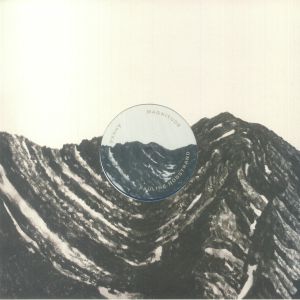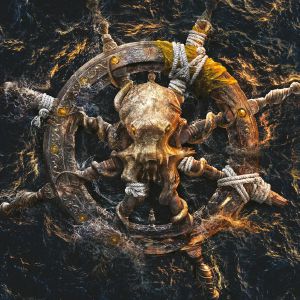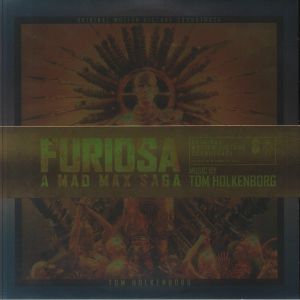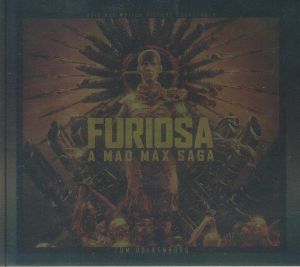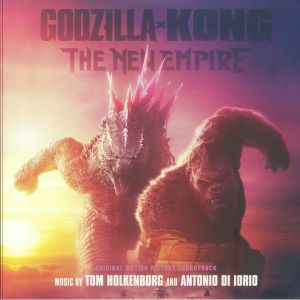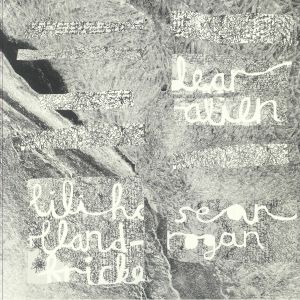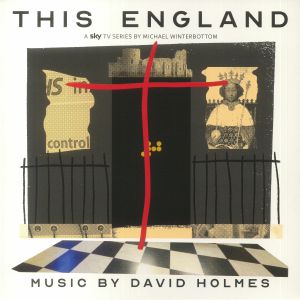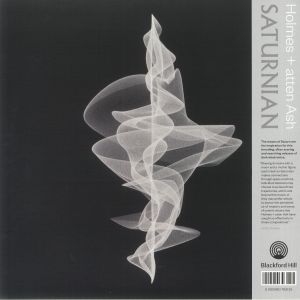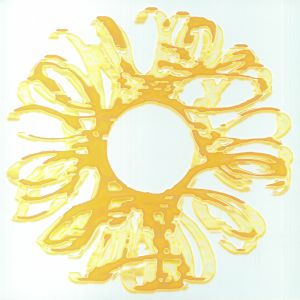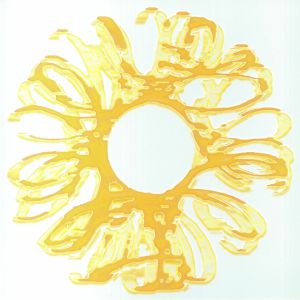Filter
Stock
Artist
Label
Featured
Release Title
Price
Tags
Back catalogue: Modern Classical
Juno's full catalogue of Modern Classical
Albums
Review: Noted as a "beacon of unease against the deluge of false positive corporate ambient currently in vogue" (we're looking at you, Spotify) Tim Hecker's No Highs is a righteous paean for what ambient music should be. And that certainly isn't mindful background music for turning you, the listener, into the best and most productive capitalist you can possibly be. Instead, Hecker's latest invites considered and focused listening; an alternative to the mediated, telescreeny musical SSRIs that impose on us today. A world turned upside down, the album presents highlights such as 'Lotus Light', 'Pulse Depression' ad 'Winter Cop', which suggest anarchic themes, while also fastening a sense of jaggedness and tumult, in a style of music that is so incorrectly expected to be neither of those things.
… Read more in stock $43.04
Review: Canadian composer Hecker's movement into scoring for film and television has been a natural progression over the past 25 years and now the artist has perfectly aligned his sound with motion pictures and film. Perhaps not fully intentional by Tim but most fans point to him as an artist whose music evoke emotions that equal the power of what a film could create. Known for his transcendent soundscapes that push ambient music into unclassifiable realms, Hecker collects a series of compositions originally created for projects like Infinity Pool, The North Water, Luzifer and La Tour. While some pieces were left unused in the final productions, their standalone presentation here showcases Hecker's ability to evoke vivid atmospheres. The seven-track EP, released via Kranky, includes the hauntingly beautiful 'Sunset Key Melt', where celestial chimes echo amidst layered, dense melodies. It exemplifies Hecker's knack for crafting spacey, droning soundscapes. Meanwhile, 'Morning' begins as a delicate piano piece before unsettling feedback disrupts its serenity, blending traditional composition with experimental textures. Shards reflects a late-career revelation: Hecker's immersive sound design translates seamlessly to visual storytelling. His work on Arctic psycho-chiller The North Water and supernatural horror Luzifer underscores his ability to merge ice-cold atmospheres with emotional depth. This EP is both eerie and ethereal, showing why Hecker's style is so compelling.
… Read more in stock $20.69
Review: Over his 25-year career, this veteran composer has crafted transcendent soundscapes that resonate with cinematic depth, making his music a perfect fit for storytelling on screen. Shards, a seven-track album released via Kranky, compiles selections from scoring projects like Infinity Pool, The North Water, Luzifer and La Tour. Tim Hecker's journey into film and television scoring feels like a natural evolution of his artistic vision. The haunting 'Sunset Key Melt' features celestial tones and layered textures, creating a spacey ambiance that is sure to impress. In contrast, 'Morning' begins as a serene piano melody, disrupted by unsettling feedback that blurs the line between beauty and unease. Each track balances traditional composition with experimental sound design, resulting in a collection that is both eerie and enchanting. This album reveals how seamlessly Hecker's soundscapes translate to visual narratives and the warm, tactile vinyl experience just seems to underline that even further.
… Read more in stock $33.52
Review: Jascha Heifetz's profound connection with the tumultuous ocean mirrors the intensity and subtleties of his renowned violin sound. He shows that on this nice heavyweight 180-gram album which, meticulously crafted, revisits Heifetz's career milestones with crisp attacks, imaginative phrasings, and mellifluous sustains. The repertoire juxtaposes iconic pieces from different eras and showcases Heifetz's discerning taste in all its glory. From Vitali's Baroque masterpiece to Faure's Romantic opus and Castelnuovo-Tedesco's modern tone poem, each piece complements the other seamlessly. Cut by Bernie Grundman and preserved without digital intervention, this LP encapsulates Heifetz's timeless artistry in a lovely package by Impex Records.
… Read more in stock $70.42
in stock $41.92
in stock $25.43
Requiem A (gatefold LP + booklet)
Cat: 486721 3. Rel: 09 May 25
in stock $32.71
in stock $13.13
in stock $21.38
Performs Raymond Scott's Soothing Sounds For Baby (LP limited to 200 copies)
Cat: DAUW 67LP. Rel: 24 Jun 24
Happy Whistler
Review: Dylan Henner (AD 93, Phantom Limb) returns to Dauw with Performs Raymond Scott's Soothing Sounds for Baby, an album reinterpreting selections from Scott's iconic 1962 work. Available on limited edition vinyl, featuring artwork by Skrew Studio that references the original releases. Raymond Scott's contributions to music are immeasurable and pioneering, with his records remaining uniquely interesting. Viewed through the lens of modern "ambient" music, the meaning of his compositions has evolved. Once revolutionary, they now serve as archival pieces, preserving an era of early electronic music and its technological constraints. In homage to Scott's foresight and genius, Henner recontextualises these ideas within a 2024 musician's mindset and studio, creating a version that aligns with his perception of Scott's music's purpose: soothing babies. Henner revisited the original records briefly, transcribing melodies and noting timbres, before embarking on his own creative journey. This album honors Scott's legacy while infusing it with contemporary sensibilities.
… Read morePlayed by: Juno Recommends Ambient/Drone
in stock $31.58
in stock $28.23
Cat: BF 071LP. Rel: 31 Oct 24
in stock $29.62
Cat: BF 071CD. Rel: 25 Oct 24
Review: Further Selections from the Electric Harpsichord is a profound rediscovery of Catherine Christer Hennix's early masterwork, offering a mesmerising, never-before-heard recording of her 1976 opus. This long-lost piece, originally debuted at Stockholm's Moderna Museet, further solidifies Hennix's unique contributions to minimalism, combining precise just intonation with electronic experimentation. Like her contemporaries La Monte Young and Pandit Pran Nath, Hennix's work transcends traditional boundaries, using carefully retuned synthesisers and feedback loops to create a hallucinogenic soundscape that manipulates time, space and perception. Released shortly before her passing in 2023, this recording stands as the most comprehensive version of The Electric Harpsichord to date. Extending the previously released 26-minute fragment, this new edition spans 47 minutes, immersing listeners in sustained, shimmering waves of sound. Henry Flynt, who championed Hennix's work in the 1970s, described the music as "hallucinogenic/ecstatic sound environments" and this recording lives up to that description. The spellbinding oscillations and drones, accompanied by Hans Isgren's sheng, evoke a deeply meditative and otherworldly experience. Hennix's polymathic background in mathematics, poetry and philosophy enriches the composition, making it as intellectually rigorous as it is emotionally transformative. A landmark of minimalist music that will excite new audiences, reaffirming Hennix's lasting influence on experimental sound and the transcendent potential of her artistry.
… Read more in stock $15.37
in stock $17.61
Haihara (LP)
Cat: STSLJNLP 405. Rel: 17 Feb 25
in stock $32.41
Labyrinthe! (reissue) (gatefold 2xLP + MP3 download code in debossed sleeve)
Cat: REGRM 031LP. Rel: 31 Oct 24
Review: Labyrinthe! stands as a singular achievement in Pierre Henry's illustrious career, showcasing his ability to craft music even when deprived of his usual sonic resources. The sounds for this piece were supplied by GRM collaborators, each bringing their own unique qualities and textures. Despite not being his own material, Henry's distinct voice and musical vision quickly come to the forefront. Through this intricate soundscape, Henry constructs a maze of audio, focusing intently on the development and manipulation of the sounds provided. His clarity of purpose and deliberate approach is evident throughout, as he shapes the contributions of others into something unmistakably his own. The piece is built upon the interplay of disparate elements, all meticulously woven together into a cohesive sonic journey. Henry described Labyrinthe! as a collaborative venture, a fusion of 58 sound fragments from seven different composers, forming a work that feels both expansive and tightly intertwined. His harmonic sensitivity ensures that the diverse sources never clash but instead create a complex, interlocking sound world. Labyrinthe! is a brilliant testament to Henry's mastery of electroacoustic composition and his remarkable ability to turn limitations into creative triumphs.
… Read more in stock $31.61
Beyond Good & Evil (Soundtrack) (20th Anniversary Edition) (gatefold 2xLP + insert)
Cat: WAYOV 027. Rel: 25 Sep 24
Review: The 20th Anniversary Edition of the Beyond Good & Evil official soundtrack offers a revitalised take on the game's original music. The soundtrack features a full orchestra which manages to preserve the intimate, improvised feel of the original compositions while adding new tracks recorded with unconventional instruments. Christophe Heral, the composer, speaks of the balance between modern orchestration and the quirky, spontaneous creativity that defined the 2003 release in the accompanying notes. With additions like a broken guitar and unique tuning, this anniversary edition celebrates the artistic spirit of the franchise and offers a fresh yet faithful homage to the original music.
… Read more in stock $50.29
Starve Acre (Soundtrack) ("burial" green vinyl LP)
Cat: ACED 212. Rel: 24 Oct 24
Review: Matthew Herbert's score for Starve Acre is an atmospheric blend of tension and subtlety, perfectly complementing the film's eerie rural setting. Known for his innovative soundtracks - as well as his innovative house productions - Herbert delivers a composition that merges traditional orchestral elements with unsettling electronic soundscapes. The result is a haunting mix that mirrors the film's themes of grief, folklore, and the supernatural. Throughout the score, Herbert balances delicate, pastoral melodies with darker, more ominous tones. Tracks swell gently before giving way to deeper, more unsettling layers, capturing the oppressive sense of dread that permeates the film. The inclusion of two renditions of 'Let Me In' i one performed by actor Matt Smith and another by folk-electronic duo Crewdson & Cevanne i adds a folkish, melancholic edge to the soundtrack. Each version offers a distinct interpretation, with Smith's stripped-down approach contrasting with Crewdson & Cevanne's more textured take. Overall, Herbert's minimalist yet powerful score elevates the haunting atmosphere of Starve Acre, turning it into an unsettling sonic experience. Fans of atmospheric soundtracks and experimental compositions will appreciate the subtle craftsmanship on display.
… Read more in stock $25.15
The Horse (limited gatefold bone vinyl 2xLP (indie exclusive))
Cat: 405053 8899863. Rel: 30 May 23
Review: We all know that Matthew Herbert is a far out sonic experimenter who will look to make music with and from anything. But this project might be his most outlandish and extraordinary to date. It starts with him looking for the largest possible animal skeleton to explore though music. He settled on a full size horse and from that made flutes from its thigh bones and bows from ribs and hair. Gut strings stretched over the pelvis feature in the mid-section and even more bizarre than that is the fact he travelled to ancient cave paintings of horses in Northern Spain to record reverb at their door. Brilliantly bonkers as ever.
… Read more in stock $41.92
in stock $36.06
Review: While awaiting the release of her album Pripyat, Catalan composer and producer Marina Herlop found herself feeling emotionally unmoored and uncertain about her music career. During this period, she visualised herself as a gardener tending to her inner landscape by expelling negative emotions through purple weeds. This imagery became the foundation of this record which is filled with her warmest, most positive sentiments. With experimental touches still present, Herlop's voice shines with hope and energy while weaving intricate acoustic instrumentation and electronic elements. Nekkuja is a celebration of perseverance and creativity that blends abstract sounds with themes of growth, light and renewal.
… Read more in stock $26.27
The Garden Suite (LP)
Cat: CCS 135. Rel: 17 Dec 24
in stock $28.23
in stock $31.58
in stock $27.39
Leave No Trace (Soundtrack) (limited forest green vinyl LP)
Cat: SPK 1044. Rel: 22 Aug 22
in stock $24.87
Sudden Fruit (LP + MP3 download code)
Cat: MTL 21. Rel: 12 May 25
in stock $21.80
in stock $30.75
Silver Lining Suite: The Piano Quintet (gatefold 180 gram vinyl 2xLP + insert)
Cat: 722860 3. Rel: 03 Dec 21
in stock $30.17
The Red Lantern (Soundtrack) (purple vinyl LP)
Cat: 8BIT 8189. Rel: 21 Jun 23
in stock $45.28
The Wind Rises (Soundtrack) (limited gatefold translucent blue vinyl 2xLP (side 4 etched) + booklet with obi-strip)
Cat: TJJA 10033C. Rel: 14 Jun 23
Review: Studio Ghibli's entire series of scores reissues continues with this new one of the OST for The Wind Rises. One of few, if the only biographical Ghibli film out there, the sublime anime tells the story of the life of Jiro Horikoshi, the designer of the first ever low-wing monoplane flighter aircraft to enter service in war. Noted for its emotional heaviness (perhaps even more so than many of Ghibli's more surreal works), this is an effect markedly achieved by in-house composer Joe Hisiashi, whose simple statement of just eight songs hears him make use of tremolo'ing strings, accordions, symphonic structures and sad string plods.
… Read more in stock $48.35
How Do You Live? (Soundtrack) (limited CD with obi-strip)
Cat: TKCA 75200. Rel: 14 Sep 23
in stock $26.55
The Boy & The Heron (Soundtrack) (gatefold 2xLP + booklet with obi-strip)
Cat: TJJA 10063. Rel: 04 Jul 24
Review: It is at this point a given that every Joe Hisiashi / Studio Ghibli soundtrack should land on our doorsteps. Hayao Miyazaki's latest film, The Boy And The Heron, is the very latest anime fantasy film to be released through the esteemed film franchise; described as a 'big, fantastical film', it follows a boy named Mahito Maki who moves to the countryside after his mother's death, discovers an abandoned tower near his new home, and enters a fantastical world with a talking grey heron. Whereas many of Hisiashi's other soundtracks deal in wide variegations of whimsy and heart-warmth, The Boy And The Heron skews purely to the latter, working in the bare but endlessly affecting mode of solo piano, and evoking the lonely but ultimately revelatory internal process that occurs during grief. Befitting of Miyazaki's controversial decision for the film not to pander to audiences or spell out meanings, so too does Hisiashi's contribution find reams of expression in a spare, single instrument.
… Read more in stock $48.63
In Vienna: Symphony No 2 & Viola Saga (gatefold 180 gram vinyl 2xLP)
Cat: 6500186. Rel: 27 Jun 24
in stock $38.00
In Vienna (limited gatefold 2xLP + insert with obi-strip)
Cat: UMJK 9131. Rel: 22 Aug 24
Review: On March 30th last year, Joe Hisaishi made a triumphant debut at the sold-out Vienna Musikverein when he conducted a program of his own compositions. Now, Deutsche Grammophon has put together the release of Joe Hisaishi in Vienna, the renowned Japanese composer, conductor, and pianist's second album for the label. This recording follows his successful debut, A Symphonic Celebration - Music from the Studio Ghibli Films of Hayao Miyazaki, which was one of 2023's best-selling classical albums. The follow-up features two world premiere recordings in the form of 'Symphony No. 2,' performed with the Wiener Symphoniker, and 'Viola Saga,' featuring soloist Antoine Tamestit.
… Read more in stock $51.70
A Symphonic Celebration: Music From The Studio Ghibli Films Of Hayao Miyazaki (Soundtrack) (gatefold heavyweight vinyl 2xLP)
Cat: 488122 9. Rel: 28 Sep 23
Review: Joe Hisiashi's incredible career as the scorer for all of Studio Ghibli's animated films (among other endeavours) has lent him an almost godlike status in the world of film music composition. Now, what better way to celebrate is there than to have him stop by for a unique 'versions' release of all the main themes from his scored films, and release them on a well-known indie label? A Symphonic Celebration hears Hisiashi revisit and recompose all the main themes from the likes of The Wind Rises, Mononoke and Spirited Away, putting fresh ears on his spirited, lifelong collaboration with director Hayao Miyazaki.
… Read more in stock $42.77
Brass Fantasia II (remastered) (LP + insert with obi-strip)
Cat: TJJA 10054. Rel: 07 Dec 22
in stock $36.06
Cat: DIALP 927. Rel: 20 Mar 25
in stock $30.17
Haiku In The Wide World (2xLP + insert + MP3 download code)
Cat: EM 1216DLP. Rel: 17 Apr 25
Review: Some 37 haiku poems are given an avant-garde, 64-minute musical backing with translations from poet Harry Gilonis, on this unique project by composer and multi-instrumentalist Tim Hodgkinson (Henry Cow) and vocalist Atsuko Kamura. We hear a vignetting lingual interplay, with lines in English by Hodgkinson sung in Japanese by Kamura, as a wide instrumental span covers percussions, violin, viola, harp, clarinets, guitars and electronics result. Recorded between Tokyo and London, the album offers a startlingly satisfying sonic renga (a Japanese poetic form encompassing a succession of haikus), lending the brevity of classic haiku an expansive, stretched-out prosthesis. From the 17th through to the 20th-century, this is a subduing but still irregular experience, as it formally demonstrates the laconic and aphoristic essence of the haiku.
… Read more in stock $27.68
in stock $23.76
Ahkka (translucent blue vinyl LP in die-cut sleeve)
Cat: WW 020LP. Rel: 21 Sep 23
in stock $16.21
Skull & Bones (Soundtrack) (gatefold heavyweight vinyl 2xLP)
Cat: LMLP 198. Rel: 25 Jul 24
Review: Pirates have always had a pretty rough time in the land of video games. On the face of it, there's so much about bandits-on-the-waves that should work perfectly for a playable adventure. And yet so few have managed to really crack the formula, save for the likes of Assassin's Creed Black Flag and Sid Meier's standard-bearing Pirates. Enter Skull & Bones, a high spec 2024 release which - having reportedly spent the best part of a decade in development hell - really wants to change the sketchy track record. Sadly, it only partly manages it, with reviews pointing to a title that's "almost great", but not really. Nevertheless, the aesthetics and effects have been praised, as has the music. Created by Tom Holkenborg, AKA Junkie XL, while much of it is relatively bombastic classical stuff, there's more than a garnish of experimentalism, ambient and avant garde here, too.
… Read more in stock $50.87
Furiosa: A Mad Max Saga (Soundtrack) (trifold orange marbled eco vinyl 2xLP + booklet with obi-strip)
Cat: MBM 7LP. Rel: 01 Aug 24
Review: How do you start describing the Mad Max universe to someone who's never been to the Mad Max universe? A relentless post-apocalyptic chase sequence across waterless badlands where H20, oil and ammo are the key motivators, alongside personal safety? A landmark science fiction that swerves high tech in favour of brute force and scavenged equipment and infrastructure? How about: a vision of a dried up, barren, desolate future where desertification and the absence of stuff are the defining factors? Australian cinema is at its best when opting for unsettling quiet and sparse settings, and Mad Max set a precedent for that. The modern incarnation of the 1979 original upped the special effects ante and made things a whole lot busier, but never lost that feeling of isolation and vulnerability. Now the latest instalment in the 21st Century series continues where predecessor, Fury Road, left off, and Tom Holkenborg clearly understands what it should mostly sound like. The dull thud of distant machines, a spluttering engine passing by, and near silent tension are the highlights here.
… Read more in stock $48.07
in stock $20.11
Godzilla X Kong: The New Empire (Soundtrack) (gatefold 180 gram transluscent blue & pink splattered vinyl 2xLP + insert)
Cat: WW 210. Rel: 03 Sep 24
Review: Moviegoers have been obsessed with man v beast since the first cameras were rolling on the earliest motion pictures. Der Golem, a 1915 German silent film buy Paul Wegener, is often cited as the first example of an on-screen creature, and since then they have come thick, fast, and usually pretty scary. At least at first. Of all the monsters out there, though, none come close to the scale of King Kong. Well, OK, maybe Godzilla. The pair certainly give each other a run for their money in the size stakes, and they've been pitted against each other several times before. Godzilla X Kong: The New Empire is the latest incarnation of that premise, Adam Wingard's 2024 flick. Here's the soundtrack, which is as bombastic and thrilling as you would hope from a major blockbuster like this.
… Read more in stock $41.36
Dear Alien (LP + MP3 download code)
Cat: MELO 143LP. Rel: 20 Nov 24
in stock $27.39
This England (Soundtrack) (limited red vinyl LP + insert)
Cat: STPR 3LPX. Rel: 23 Mar 23
Review: A popular and controversial new TV series, This England, documents the recent history of England's most contemptible prime minister, Boris Johnson, and his Conservative government's reaction to the COVID-19 pandemic. Notwithstanding the surreality of so quickly dramatizing a very real and bad collective experience (there are theories out there that say turning real traumatic world events into TV spectacles has the useful effect of placating a public that would otherwise grow revolutionarily angry), we still commend the OST by David Holmes here, which matches the urgency and quick-action of the pandemic as it spread across the country. Holmes' orchestral score aims for three disparate themes ('creeping', 'urgency', and 'careful'), which cause the music to rise in tactful intensity, contrasting to not-so-tactful 'traffic light' system to which the public was subject - but which the government somehow weren't.
… Read more in stock $30.17
in stock $14.42
in stock $27.11
in stock $24.87

 USD
USD





